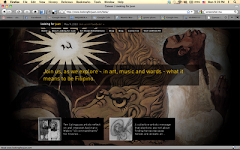What does it mean to be Filipino? Bayanihan is not confined to within the shores of the Philippines nor is the craving for sisig, batchoy or pansit only awakened when one steps onto his place of birth. The definition of "Filipino" has now officially been stripped off its dependence on the geography and devoid of the stereotypes once branded upon us. The Filipino in the Philippines alone no longer exists. Today is about Filipinos in the Philippines, Filipinos in the United States, Filipinos in the Middle East, Filipinos in Europe … Today is about Filipinos in the world.
The challenge now, to Filipinos here in the country, is that nationalism remains at its greatest because, after all, this is the epicenter of wave after wave of Filipinos venturing into the world. Our country itself should embody the hope and the home that every Filipino abroad will want to go back to. As we hold the fort, all of us here in the country should work together to nurture the country into one that is abounding in hope. It is through this that we can get more balikbayan to share whatever they have gained abroad: knowledge, networks, investments, stories, etc.
Nationalism without borders is the ideal we have to pursue.
(Excerpted from the keynote speech given by former President Fidel V. Ramos, chairman of the Ramos Peace and Development Foundation-RPDEV and the Boao Forum for Asia-BFA, on the commemoration of International Migrants' Day and the launching of the book Democracy and Discipline: FVR and His Philippine Presidency by Dr. W. Scott Thompson and Federico M. Macaranas, on December 18, 2006.)
Sunday, January 7, 2007
Subscribe to:
Post Comments (Atom)





No comments:
Post a Comment